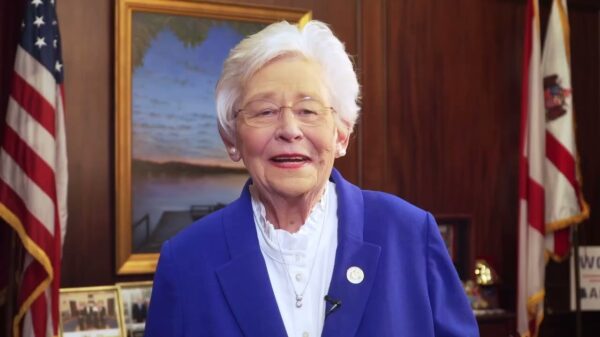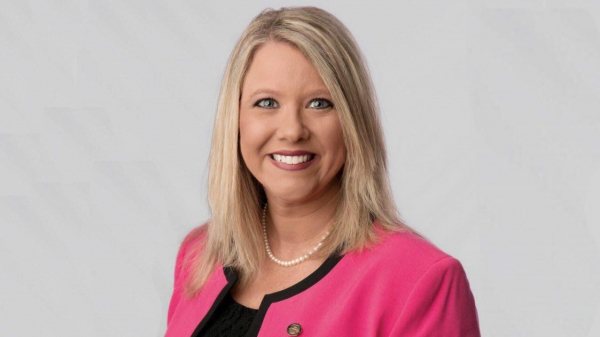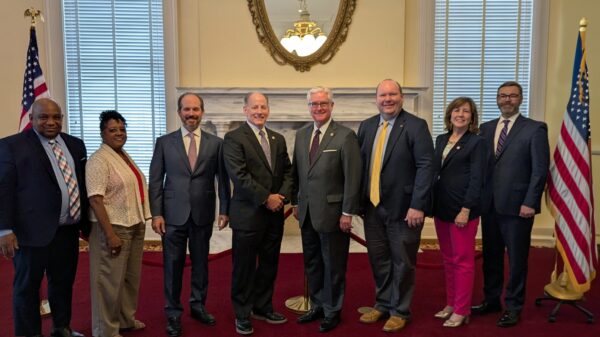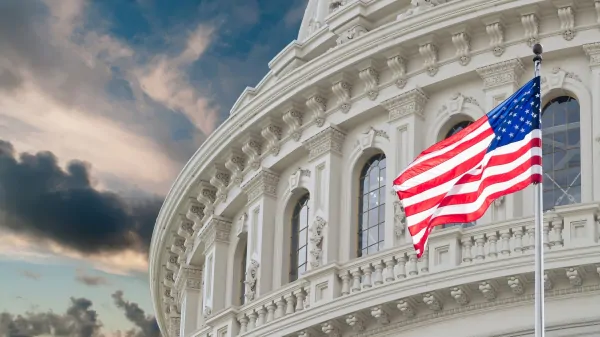Alabama Rep. Chip Brown, R-Mobile, on Thursday announced plans to once again file a constitutional amendment that would allow judges to hold more people charged with violent crimes in jail without bail.
Brown’s filed similar legislation last year, but after passing in the state House in a 92-3 vote it failed to clear the Alabama Senate Judiciary Committee.
Brown told APR on Thursday that last year they simply “ran out of time” during the legislative session, but that he feels confident he’ll get the measure on statewide ballots this year.
“There’s been some high profile cases that this could have had a direct impact on, possibly, so I think the mood is there,” Brown said.
Brown noted that Ibraheed Yazeed, charged with capital murder in connection with the death of 19-year-old college student Aniah Blanchard in November, was out on bond after being charged with violent crimes with Blanchard was killed.
Yazeed had previously been charged with two counts of kidnapping, two counts of robbery and one count of attempted murder involving the robbery and beating of two men at a hotel in January, according to court records.
Brown’s proposal would allow voters to decide whether to amend section 16 of the Alabama Constitution, which reads “all persons shall, before conviction, be bailable by sufficient sureties, except for capital offenses, when the proof is evident or the presumption great; and that excessive bail shall not in any case be required.”
Brown proposes changing that section to read “If no conditions of release can reasonably protect the community from risk of physical harm to the accused, the public, or both, ensure the presence of the accused at trial, or ensure the integrity of the judicial process, the accused may be detained without bail. Excessive bail shall not in any case be imposed or required.”
Under the proposed changes prosecutors and judges would be able to keep a person charged with a Class A violent crime locked in jail without bond.
“It’s very limited in scope,” Brown said, adding that the legislation is supported by both the Alabama Association of Chiefs of Police and the Alabama Sheriff’s Association.
“The first issues we discussed was potential impacts on any jail overcrowding. Their opinion in my opinion is that it would have very minimal impact on the situation,” Brown said, adding that the change wouldn’t be mandatory. “It gives the judge the discretion, the opportunity to deny bond to someone who is potentially an imminent threat to the community, to themselves or who is a flight risk.”
Bill Partridge, president of the Alabama Association of Chiefs of Police and Oxford Police Chief, told APR in a message Thursday that the association supports Brown’s legislation and agrees that violent offenders who pose a threat to society should not be allowed to be free prior to a hearing by a competent court.
If the legislation becomes law, district attorneys would have to request an evidentiary hearing, which the judge could approve or deny, and if a hearing is granted and the evidence discussed, the judge could still chose to grant a bond for the defendant, Brown said.
APR’s attempts to reach the Alabama Sheriff’s Association for comment Thursday were unsuccessful.
Brown said that during last year’s legislative session he hadn’t heard any pushback from groups concerned about his proposal.
Fox 10 reported in May that the Southern Poverty Law Center and the American Civil Liberties Union of Alabama opposed the legislation, arguing it could allow people charged with relatively minor crimes to be jailed without bail. Attempts to reach both groups for comment on Thursday were unsuccessful.
Sonny Brasfield, executive director of the Association of County Commissions of Alabama, told APR on Friday of concerns about how the legislation might impact county finances.
“The proposed legislation highlights a very serious problem in operating county jails in every corner of Alabama – a problem that has gone unnoticed and unaddressed for far too long,” Brasfield said in a message Friday morning. “Today, hundreds, if not thousands, of inmates sit in county jails awaiting trial. The local taxpayers shoulder the total cost – except for $2.25 per day for the cost of meals. Even though each of these inmates is charged with a state crime and, when convicted, will eventually make his or her way to the state system, it is the county governing body that must fund the operation of the jail to house these prisoners.”
Brasfield said that prison reforms in 2015 resulted in state inmates filling county jails but came with no state money to pay for their confinement or medical costs.
“The specific legislation being discussed seeks to address a very serious situation – and one that is of concern to counties. We certainly understand and respect the motivation behind this particular bill,’ Brasfield said. “But any change in our process for handling inmates will come with an enormous price tag. And we believe it is time the state begins to shoulder the costs that are stressing county jails to the breaking point.”
Brasfield said during the 2020 legislative session the association’s main focus will be to address the inmate crisis at the county level – “a crisis that is no less serious than the situation at the Alabama Department of Corrections that has dominated public attention over the last decade.”
























































